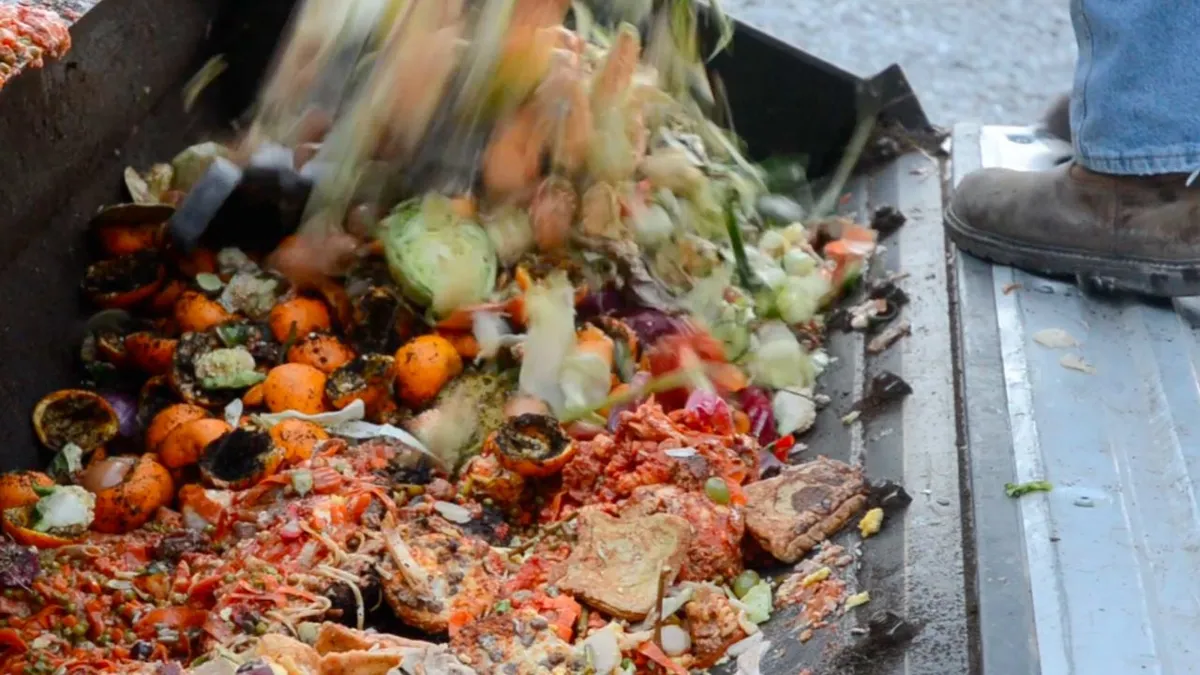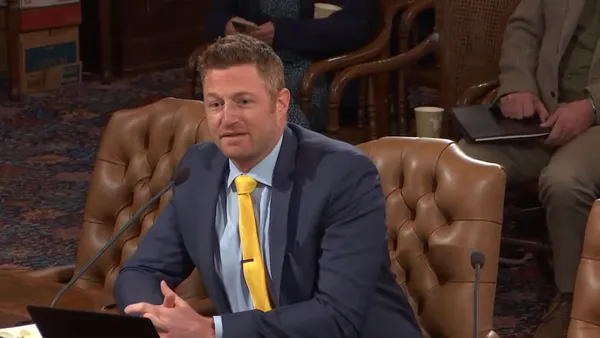Dive Brief:
- As Oregon's Department of Environmental Quality (DEQ) works to cut state food waste 40% by 2050, the agency is studying food use behavior and experimenting with waste-reduction strategies. Staff shared the progress on its 2017 strategic plan and notable results in a recent webinar.
- One DEQ survey found that about 40% of residents believe composting alleviates some personal guilt about food waste. This has spurred the agency to rethink messaging on the benefits of composting, as food scrap collection is meant to be secondary to reduction.
- Another study analyzed the environmental impacts of rescue systems, including gleaning excess food with cars. Both caused a net increase in smog factor production and CO2 emissions.
Dive Insight:
Though they announced no new policies, DEQ offered unique insight on how surveys, research and trial programs are shaping the way they engage with the public and private sectors on the problem.
Similar to the agency's recent work about misconceptions around the terms "recyclable" and "compostable," this research on organic waste through a sustainable materials management lens had surprising results.
For an upcoming report on food rescue, the department assessed which transit options have net positive impacts on eight environmental concerns, such as energy demand and freshwater use. The two car transport methods assessed – gleaning produce and using a food rescue app that has on-call drivers deliver leftovers – often did more harm than good.
According to Elaine Blatt, a senior policy analyst who presented on the webinar, the results are clear. Sometimes it's a better choice to let the food go to landfill than shuttle it around.
Another surprising finding came from a 2017 study conducted with Portland State University's Community Environmental Services. As part of an in-depth analysis of the waste habits of 164 residents, 40% agreed composting made them feel less guilty about throwing away food. Ideally, the DEQ wants residents to produce less food waste in the first place, said David Allaway, a senior policy analyst.
ReFED, the nonprofit dedicated to reducing U.S. food waste, calculates that consumer education on preventing chucked groceries delivers a higher financial return per ton of food than composting. Conversely, the ranking is flipped when looking at amounts of waste reduced and emissions avoided.
In addition to research projects, the DEQ has sponsored trial programs to see how effective waste reduction strategies are in practice. Following a successful pilot by the Clackamas County schools, the department helped fund the replacement of individual milk cartons with bulk dispensers. The switch has cut milk purchases by over 100 gallons a month for some schools, said Allaway. Southern Oregon University recently received department money to downsize cafeteria plates to see if that will cut food waste like it has elsewhere.
By the end of 2019, the department also plans to launch the West Coast Voluntary Agreement to Reduce Wasted Food. This effort will ask retailers and producers in California, Oregon, Washington and British Columbia to modify packaging in a way that helps consumers reduce food waste. Grocery chain Kroger recently expressed interest, said Allaway, and they're looking for more partners.
The project is organized alongside the Waste and Resources Action Programme, the World Wildlife Fund, ReFed and the Pacific Coast Collaborative. The latter is part of a regional commitment to cut food waste 50% by 2030.
Correction: A previous version of this article indicated the DEQ funded Clackamas County's initial milk dispenser pilot.














